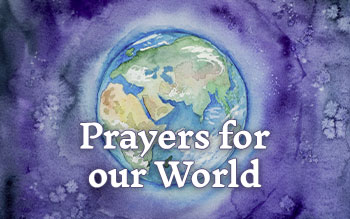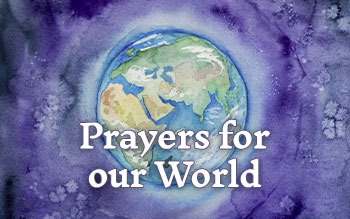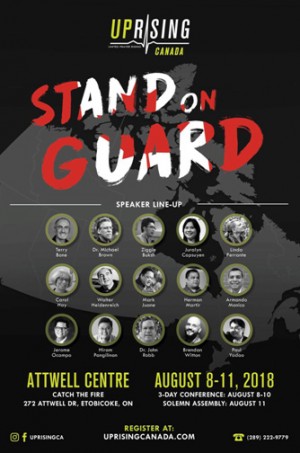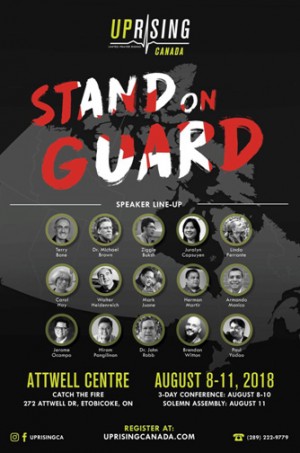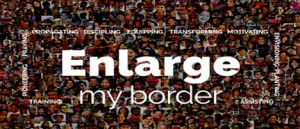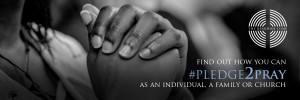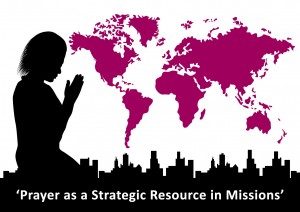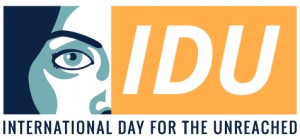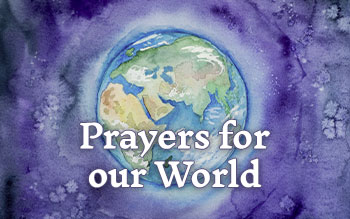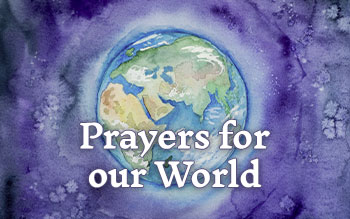
Super User
Lorem ipsum dolor sit amet, consectetur adipisicing elit, sed do eiusmod tempor incididunt ut labore et dolore magna aliqua. Ut enim ad minim veniam, quis nostrud exercitation ullamco laboris nisi ut aliquip ex ea commodo consequat. Duis aute irure dolor in reprehenderit in voluptate velit esse cillum dolore eu fugiat nulla pariatur
Received by Rick Ridings in Jerusalem 6 March, 2018
During a time of worship in SuccatHallel, I saw in a vision the eyes of the Lord roving over the earth, watching over the nations. His eyes shone like spotlights upon the nations.
The world looked like a giant chessboard, and the government of each nation looked like a “knight” (the horse like figure) on their square of the chessboard. These “knights” (representing national governments) had their backs turned away from Jerusalem and Israel. They were surrounded by intercessors that also had their backs turned away from Jerusalem and Israel.
In certain nations, as the eyes of the “righteous remnant” intercessors were opened to the Scriptures and the Lord’s choice of Jerusalem, Israel as the seat of His Kingdom government upon the earth (see Psalm 2 and Ezekiel 43:1-7), those intercessors turned towards Jerusalem and Israel.
Then those intercessors turned towards their “knight” (their nation’s government) and started prophesying and proclaiming over the “knight”.
In nations where a large portion of the remnant Intercessors did this, the knight turned its face towards Jerusalem and Israel. This indicated that they were aligning with God’s sovereign choice of Jerusalem as the footstool of His throne, of His government upon the earth.
Those “knights” (governments) that turned towards Jerusalem and Israel started morphing into sheep that got whiter and whiter. Horns of strength grew from their heads, indicating the blessing of the Lord on their governments and economies. Those “knights” that did not turn towards Jerusalem and Israel morphed into goats, and their fur turned darker and darker. Horns of evil grew from their heads, indicating the increasing rule of evil over their nations.
Some nations in all the continents turned towards Jerusalem and Israel. Some that turned were even in the Middle East and North Africa. Some that did not turn were also surprising, as in past history they had been more aligned towards Israel.
Then the Lord reached forth His hand, picked up those “knights” that were becoming “sheep”, and made them jump over the goat nations, causing them to quickly move ahead economically, etc
I felt the Lord said: “I am extending a season of mercy for nations to change and no nation is hopeless. Let the righteous remnant Intercessors awaken and turn their hearts towards My choice of Jerusalem as the footstool of My government on earth, and let them cry out and prophesy to their governments. This is a time when nations can be turned around.”
Just after I received this vision, and before I shared it, one of our intercessors read from Revelation 5:9,10: “…with your blood you purchased for God persons from every tribe and language and people and nation. You have made them to be a kingdom of priests to serve our God, and they will reign on the earth.”
Rick Ridings
- A SEASON OF DECISION REGARDING JERUSALEM. A GATE HAS OPENED…UNITED STATES, GUATEMALA, AND PARAGUAY GO THROUGH THE GATES!
One week ago yesterday, May 14, 2018, the 70th Anniversary of the birth of the modern nation of Israel, the United States followed through with its promise and moved its Embassy to the city which President Donald Trump last December 6th memorably declared to be the Capital of that nation, Jerusalem!
That had been a courageous declaration…shortly after it was made, 128 members of the UN General Assembly supported a resolution condemning it and admonishing other states against following its example. And it was a courageous decision to push through with the promise others had failed to keep, bringing it to fruition on this historic date. In a taped message from Washington played at the ceremony, President Trump said:
Exactly 70 years ago the United States under Harry Truman became the first nation to recognize the State of Israel. Today, we officially open the United States embassy in Jerusalem. Congratulations! It’s been a long time coming…Almost immediately after declaring statehood in 1948, Israel designated the city of Jerusalem as its capital, the capital the Jewish people established in ancient times.
So important…Yet for years we failed to acknowledge the obvious, the plain reality that Israel’s capital is Jerusalem…That changed last December 6, when we recognized Jerusalem as Israel’s capital…Today we follow through on this recognition and open our embassy in the historic and sacred land of Jerusalem. And we’re opening it many, many, many years ahead of schedule…We extend a hand in friendship to Israel, the Palestinians and to all of their neighbours. May there be peace. May God bless this embassy. May God bless all who serve there….
We believe that in this event we have witnessed a sacred “passing through” a gateway in the purposes of God for nations during this season. With the US taking the initiative, that gateway is clarified for other nations, and the blessings of the redemptive purposes of God within those nations may be activated. May 14th in Jerusalem was a blessed and sacred, as well as a joyous celebratory occasion!
Yet, even as Mr. Trump was asking God’s blessing the Embassy and those who will work within it, the enemy of nations was raising its false and deceiving banner to turn nations away from that blessing—in fact, to perceive it as a curse.
The violent demonstrations on the Gaza/Israel border against the embassy move, driven by a murderous power which demands Jerusalem and every part of “Palestine” as its own, seized the moment and the imagination of much of the world. By mid-morning, as the Embassy ceremony was taking place in Jerusalem, the death toll of those seeking to breach the walls of the nation already had begun quickly to rise.
In many news broadcasts around the world (and later newspaper headlines), viewers were being presented with a split-screen—one side showing a smiling Ivanka Trump and Benjamin Netanyahu among other rejoicing, celebrating people—all seemingly oblivious to the faces presented on the other side of the screen of desperate, screaming young Palestinians presumably being gassed or mercilessly shot down by Israeli soldiers.
By the end of the day 61 were reported dead, over a thousand wounded. It didn’t matter that these scenes and many of the people in them had been set up for this very purpose, being seen to the world as victims brutalized by the Zionist regime; or that Israel was simply attempting to defend its borders being overrun by tens of thousands who believe fervently that she has no right to exist. Nor did it really matter that within two days a senior Hamas official would divulge that 50 of the 61 people killed had in fact been Hamas operatives.
The images had made their mark. Around the world Israel was accused of frightfully “disproportionate actions,” of the callous destruction of innocent children, of war crimes. Of, as many of the pictures seemed intended to imply, enjoying a party for the moving of an Embassy which itself was the cause of the Catastrophe taking place on the border with Gaza.
Peoples and nations are being presented with choices related to alignment with what God has said regarding His land, His people and His holy city. One of these choices is a way of truth, the other one of deception. The warfare over these choices is fierce, the deception is subtle. Without the power and authority of God’s Word and the merciful light of revelation of the Holy Spirit among faithful intercessors within those nations, even believers are being deceived.
This revelation was certainly present in what occurred two days later, when President Jimmy Morales arrived in Jerusalem to oversee his nation Guatemala becoming second after the United States in opening its Embassy in Jerusalem! Among his party were a number of believing intercessors. Tiny Guatemala had in fact been the first country to cast its vote in the UN making way for the establishment of Israel in 1947, and second (behind the United States) to recognize the new state after it was born in 1948. Local papers commented on the role evangelical Christians in Guatemala have had in steering it towards the blessing of Israel, recognizing Jerusalem as its capital, and moving its embassy there. And then on Monday, President Horacio Cartes arrived to officiate as Paraguay followed suit, becoming the third country to open its embassy in the capital.
Martin and Norma Sarvis, Jerusalem
Let’s us continue to pray for the peace of Jerusalem and for the surrounding nations in that most volatile area of the world. Pray for Jews and Palestinians to come to faith in Messiah and so be enabled to love one another and share the land together as both children of Abraham and followers of Jesus.
This an invitation to Pastors, Intercessors, Leaders, Young adults & Youth Leaders, Young adults and Youths to UPRISING Canada: Stand on Guard on August 8-11, 2018
It is so evident that Millennials are faced with challenges never before experienced by generations past. They are asleep or lost interest to the calling of Christ; spiritually dead. In North America, churches are aging while attendance is on a steep decline.
Studies by The Pew Research Centre in Washington, D.C. have determined that adults in the US who identify themselves as “Christians” fell from 78% to 71% within a seven year period. In addition, multiple studies highlight that up to 50% of youth group attendees drift from God after they graduate from high school. Regrettably, Canadian statistics exceed this.
There is no longer any time to hit the snooze button - Jesus Christ’s return is soon-approaching! However, before the Coming of the Son of Man, by faith, we believe that this same generation will be used to usher a new global wave of revival - a revival that the world has never seen before, as declared by many prophets of God.
July 2016 in South Korea marked the beginning of a United Prayer Rising (UPRISING) movement by the youth, for all generations. In South Korea the emerging generation from 36 different nations gathered and where the Millennials were challenged to pray at the DMZ boarders of North and South Korea, where they prayed "ONE DAY, ONE KOREA." On February 2018 in the PeyongChang Olympic Winter Games, a divided nation marched under one flag.
The call was clear: “Awake, O sleeper, arise from the dead, and Christ will shine on you.” Ephesians 5:14. Generations past and present - rising from their slumber. They gathered. They prayed. They saw the change in their nation.
The waves keep rolling. A rapid series of global UPRISING movements have since taken place:
- Philippines, September 2017
- South Africa, September 2017
- Malaysia, September 2017
- Mongolia, October 2017
- Bolivia, November 2017
…with waves set to sweep through Chile, Brazil, Europe, India, and the United States in 2019.
“In that day I will raise up the booth of David that is fallen and repair its breaches, and raise up its ruins and rebuild it as in the days of old, that they may possess… all the nations who are called by my Name,” declares the Lord who does this.” Amos 9:11-12
The trumpet has sounded, and Canada has heard the call. WE ARE READY TO “STAND ON GUARD”. We are excited to announce that Canada will host the first United Prayer Rising in North America, and with excitement we say that UPRISING Canada: Stand on Guard will be a historic catalyst event.
UPRISING Canada: Stand on Guard will take place on August 8th to 11th, 2018 at The Catch the Fire Toronto (Attwell Centre) - hosted by various churches across the Greater Toronto Area and The Emerging Generation Ministry. Watch the video: https://youtu.be/rYgXDhqN36o
This will be a 4-day catalytic prayer convergence, for the reversal of the global trend of attack happening among the millennials today. With faith, we will see the re-birth of prayer, missions, and Jesus movements in our nation… as in the days of the well-known Toronto Blessing.
UPRISING Canada will address the Canadian challenges of attacks on this generation. First a three-day destiny conference on August 8-10, 2018 that will have powerful worship sessions, relevant plenary sessions, and empowering breakout prayer sessions. And on August 11, 2018, concluding with a 12 hour united prayer and worship rally for a time of coming to God to face the Generation's spiritual Goliath. For speaker information, please view attached PDF. (August 8-10, 2018 will be a paid conference and August 11, 2018, Solemn Assembly will be free, please visit our website for more details (www.uprisingcanada.com)
Toronto is also known for its vast multi-cultural population. Thus, we will be welcoming participants from all over the world, of those who have heard the call. We are calling forth the emerging generation in Canada and thousands more to rise up! We are expecting thousands to be part of this event.
We ask that you prayerfully consider your participation in UPRISING Canada. It would be a great honour for you to be part of this event, unite the body and the generations for such a time like this. Be involved
in this historic movement. This opportunity is something that we do not want you to miss out on!
For more information or to register for this event, we invite you to visit www.uprisingcanada.com or Facebook: www.facebook.com/UPRISINGCA/ .
This an invitation to Pastors, Intercessors, Leaders, Young adults & Youth Leaders, Young adults and Youths to UPRISING Canada: Stand on Guard on August 8-11, 2018
It is so evident that Millennials are faced with challenges never before experienced by generations past. They are asleep or lost interest to the calling of Christ; spiritually dead. In North America, churches are aging while attendance is on a steep decline.
Studies by The Pew Research Centre in Washington, D.C. have determined that adults in the US who identify themselves as “Christians” fell from 78% to 71% within a seven year period. In addition, multiple studies highlight that up to 50% of youth group attendees drift from God after they graduate from high school. Regrettably, Canadian statistics exceed this.
There is no longer any time to hit the snooze button - Jesus Christ’s return is soon-approaching! However, before the Coming of the Son of Man, by faith, we believe that this same generation will be used to usher a new global wave of revival - a revival that the world has never seen before, as declared by many prophets of God.
July 2016 in South Korea marked the beginning of a United Prayer Rising (UPRISING) movement by the youth, for all generations. In South Korea the emerging generation from 36 different nations gathered and where the Millennials were challenged to pray at the DMZ boarders of North and South Korea, where they prayed "ONE DAY, ONE KOREA." On February 2018 in the PeyongChang Olympic Winter Games, a divided nation marched under one flag.
The call was clear: “Awake, O sleeper, arise from the dead, and Christ will shine on you.” Ephesians 5:14. Generations past and present - rising from their slumber. They gathered. They prayed. They saw the change in their nation.
The waves keep rolling. A rapid series of global UPRISING movements have since taken place:
- Philippines, September 2017
- South Africa, September 2017
- Malaysia, September 2017
- Mongolia, October 2017
- Bolivia, November 2017
…with waves set to sweep through Chile, Brazil, Europe, India, and the United States in 2019.
“In that day I will raise up the booth of David that is fallen and repair its breaches, and raise up its ruins and rebuild it as in the days of old, that they may possess… all the nations who are called by my Name,” declares the Lord who does this.” Amos 9:11-12
The trumpet has sounded, and Canada has heard the call. WE ARE READY TO “STAND ON GUARD”. We are excited to announce that Canada will host the first United Prayer Rising in North America, and with excitement we say that UPRISING Canada: Stand on Guard will be a historic catalyst event.
UPRISING Canada: Stand on Guard will take place on August 8th to 11th, 2018 at The Catch the Fire Toronto (Attwell Centre) - hosted by various churches across the Greater Toronto Area and The Emerging Generation Ministry. Watch the video: https://youtu.be/rYgXDhqN36o
This will be a 4-day catalytic prayer convergence, for the reversal of the global trend of attack happening among the millennials today. With faith, we will see the re-birth of prayer, missions, and Jesus movements in our nation… as in the days of the well-known Toronto Blessing.
UPRISING Canada will address the Canadian challenges of attacks on this generation. First a three-day destiny conference on August 8-10, 2018 that will have powerful worship sessions, relevant plenary sessions, and empowering breakout prayer sessions. And on August 11, 2018, concluding with a 12 hour united prayer and worship rally for a time of coming to God to face the Generation's spiritual Goliath. For speaker information, please view attached PDF. (August 8-10, 2018 will be a paid conference and August 11, 2018, Solemn Assembly will be free, please visit our website for more details (www.uprisingcanada.com)
Toronto is also known for its vast multi-cultural population. Thus, we will be welcoming participants from all over the world, of those who have heard the call. We are calling forth the emerging generation in Canada and thousands more to rise up! We are expecting thousands to be part of this event.
We ask that you prayerfully consider your participation in UPRISING Canada. It would be a great honour for you to be part of this event, unite the body and the generations for such a time like this. Be involved
in this historic movement. This opportunity is something that we do not want you to miss out on!
For more information or to register for this event, we invite you to visit www.uprisingcanada.com or Facebook: www.facebook.com/UPRISINGCA/ .
India: Northern India States - National Fellowship 8-10 June 2018
Each year, the members of the National Fellowship Society and Leadership Team from across Northern India gather to evaluate our successes and failures that have occurred during the past year through our ministry in Untouched / Unreached Northern India. It is during this time that we set new goals for the year ahead and beyond. This year again we are all gathering at Baptist missionary Society Guest house, Kolkata.
This is the time when yearly reports from different regions of India will be presented and the leadership will evaluate to find where we have gone wrong and what we have done right.
Each year, we experience a great move of God among us giving us new insight in our missionary efforts and initiatives. Each member cherishes this time of missional fellowship and evaluation.
Kindly pray for all of us gathering for these 3 days and for a great move of God among us showering His blessings and giving us new insights especially in the context of our time today in Northern India.
Annual General Meeting 2018 - Gathering of NF Mission Leaders Across Northern Indian States - Fellowship, Worship, Prayer, Presentation of Reports, Evaluation, Missional Bible Studies and Thought-provoking Messages followed by a time of Fresh Commitment.
More info: www.nationalfellowship.org
The Archbishop of Canterbury, Justin Welby, is inviting Christians around the world to pray as one for people to know Jesus Christ.
Thy Kingdom Come is a global ecumenical prayer movement. What started in 2016 as an invitation from the Archbishops of Canterbury and York to the Church of England has grown into an international and ecumenical call to prayer.
During the 11 days of Thy Kingdom Come, it is hoped that everyone who participates will deepen their friendship with Jesus, bring other to know Jesus or know him better, and come to know that every aspect of their life is the stuff of prayer.
It is anticipated that millions of Christians around the globe will be mobilised to pray for His kingdom to come in their localities and praying that people they know may come to know Jesus.
In 2017, 25% said it made their church feel closer to God as a group; more than 60% of individuals said they were motivated to pray more. ‘It was so encouraging to see our church come together and pray more’. ‘We have villages who are not church goers asking us how to pray’. ‘I introduced my 11 year old son to prayer walking, it was a very special day’.
Resources / Videos and a New Song are available at: https://www.thykingdomcome.global/
By John D Robb, Chairman of IPC
Here is another segment on how important the role of Spirit-led prayer is to the seeing breakthroughs happen in all ministry and especially in the realm of missions to those still unreached by the Gospel of Christ:
1. Spiritual revivals wrought by prayer have powerfully impacted frontier missions.
It has been said that "all the mighty spiritual revivals which constitute the mountain peaks of missionary annals had their roots in prayer." Jonathan Goforth, missionary revivalist in the Far East at the beginning of this century, described the powerful revivals and awakenings that took place in Korea and China, which not only revived the church but brought tens of thousands from unreached peoples to Christ. It all began with small bands of believers deciding to pray together regularly for an outpouring of God's Spirit upon them and upon the unconverted. Goforth later discovered it was not only the missionaries who had been praying, but someone in his home country:
"When I came to England, I met a certain saint of God. We talked about the revival in China and she gave me certain dates when God specially pressed her to pray. I was almost startled on looking up these dates to find that they were the very dates when God was doing his mightiest work in Manchuria and China....I believe the day will come when the whole inward history of that revival will be unveiled and will show that it was not the one who speaks to you now, but some of God's saints hidden away with Him in prayer who did most to bring it about."
In Hawaii, the revival known as the "Great Awakening" (1837-43), began in the hearts of missionaries who were moved strongly to pray. At their annual meetings in 1835 and 1836 "they were powerfully moved to pray and were so deeply impressed with the need of an outpouring of the Spirit that they prepared a strong appeal to the home churches, urging Christians everywhere to unite with them in prayer for a baptism on high." There were soon signs of growing interest in spiritual things among non-Christians, and then in 1837, so sweeping a spiritual awakening occurred that the missionaries had to labor night and day to accommodate multitudes anxiously seeking the assurance of salvation. In one day over 1,700 converts were baptized and in six years, 27,000 were added to the church.
J. Edwin Orr, the late historian of revivals, observed that the 19th century spiritual awakenings "revived all the existing missionary societies and enabled them to enter other fields... [and] practically every missionary invasion was launched by men revived or converted in the awakenings." Of four great outpourings of the Holy Spirit in the 19th century, he wrote:
"The turn of the century awakenings sent off pioneer missionaries to the South Seas, to Latin America, Black Africa, India and China. There arose denominational missionary societies such as the Baptist Missionary Society, the American Board, and other national missions in Europe.... Then a second wave of revival reinforced the foreign missionary invasion of all the continents.... William Carey was followed by societies ready to evangelize India. Robert Morrison opened a way for missionaries to settle in the treaty ports of China.... Missionaries pushed north from the Cape of Good Hope as David Livingstone explored the hinterlands of Africa."
Of most importance to this discussion, Orr traced the origin of the spiritual awakenings which launched new missionary enterprises to worldwide prayer meetings which intensified before they occurred. David Bryant concurs with Orr's analysis. He has detected a fivefold pattern in the outward movements of the gospel over the last 300 years:
- A movement of united prayer begins.
- A renewed vision of Christ and His church emerges.
- The church is restored in unity and in its determination to obey the lordship of Christ.
- A revitalization of existing ministries and outreach occurs.
- This leads to an expansion of the gospel among those who have been untouched to that point.
Bryant observes, "God's primary strategy is to bring his people together in prayer... in order that they might seek him unitedly. They pursue in prayer a fresh revelation of the glory of God's son so as to penetrate all levels of society with the gospel and to launch new mission thrusts to the ends of the earth." He has quoted J. Edwin Orr as saying, "Whenever God is ready to do a new thing with his people he always sets them a-praying!"
2. Intercessory prayer enables God's children to possess their inheritance, the peoples of the earth.
In Psalm 2:8 the Lord invites us as His children to "Ask of me and I will make the nations your inheritance and the ends of the earth your possession." The only thing we can take with us into eternity as our inheritance are other people. Our joy and crown, just as they were for Paul, will be others who come to Christ through our efforts. As this Psalm reveals, asking or praying opens the door to God's making the nations, or more specifically, the frontier peoples (those still without an indigenous movement of Jesus followers) our inheritance.
In the history of missions, great in-gatherings into the church of Christ appear to be linked to strong, persistent praying. John Hyde, missionary to northern India, became known as "the apostle of prayer" since God raised up scores of national workers in answer to his prayers. He made a covenant with God to pray for one person to accept Christ each day which resulted in 400 conversions the first year. The following year, he decided to trust God for two a day, with 800 coming to Christ that year. Finally, the next year, as his faith grew, he trusted God for four a day. Through much travail in prayer, four a day came to Christ through his work.
A woman missionary influenced by Hyde's prayer life resolved to devote the best hours of her time to prayer, making prayer primary and not secondary as before. God said to her, "Call upon me and I will show thee great and mighty things. You have not called upon me and therefore you do not see these things in your work." As she began to make prayer the priority in her ministry, enormous changes resulted with 15 baptized at first, and 125 adults coming to Christ during the first half of the following year. Later she wrote, "Our Christians now number 600 in contrast with one-sixth of that number two years ago."
Elsewhere in India, prayer has also proved to be key to great in-gatherings among unreached peoples. Missionaries working among the Telugu outcastes were discouraged to the point of almost abandoning the work because of the lack of response. However, the last night of 1853, a missionary couple and three Indian helpers spent the night in prayer for the Telugus on a hill overlooking the city of Ongole. When the first light of day dawned, they all shared a sense of assurance that their prayers had prevailed. Gradually the opposition broke over the next few years, and a mighty outpouring of the spirit brought 8,000 Telugus to Christ in only a six-week period. In one day over 2,200 were baptized and this church became the largest in the world!
In 1902, two lady missionaries with the Khassia Hills Mission were challenged by the need to pray and Khassian Christians also began to pray for their unconverted fellows. In a few months over 8,000 were added to the church in that section of India.
Wesley Duewel of OMS International, known as a kind of guru on prayer for missions, once told me that the first 25 years of their mission's work in India was very slow. Only one church per year on the average came into being. Out of a period of intense heart searching by the team of missionaries, the decision was made to recruit 1,000 people in their homelands to pray 15 minutes a day for the work. Not long after, things began to move substantially. Over the next several years, the mission went from 25 churches with 2,000 believers, to 550 churches with more than 73,000 believers. Duewel believes the massive amount of prayer, harnessed and specifically focused on their efforts, turned the tide. One of his Indian coworkers exclaimed to him: "All of us are seeing results beyond anything we could have imagined!"
Jonathan Goforth, in writing about the Korean revival of 1907, said: "[It was] intense, believing prayer that had so much to do with the revival which... brought 50,000 Koreans to Christ. We are convinced too that all movements of the Spirit in China which have come within our own experience may be traced to prayer." One missionary remarked to him, "Since the Lord did so much with our small amount of praying, what might He have done if we had prayed as we ought?"
3. Effective mission strategies come from research immersed in prayer.
Joshua was one of the original "researchers" who spied out the land of promise in Numbers 13. Because he knew the facts about the land and its peoples so well, he was prepared to become the great military strategist that he later became during the conquest. However, in the book of Joshua, we see him continually seeking God for His guidance in the development of effective strategies. He did not lean on his own understanding but relied upon God's direction given through prayer.
The principle is still the same. I am becoming more and more convinced that coupling research findings concerning the people group we are trying to reach with ongoing persevering prayer is an unstoppable combination in the process of developing effective mission strategy. John Dawson's book Taking Our Cities for God: How to Break Spiritual Strongholds insightfully ties together ministry-related research and intercessory prayer.
4. Prayer is the supernatural way of multiplying and sending out Christian workers into frontier missions.
As in the days of Jesus, the harvest is still plentiful and the workers are few. The unevangelized world, still claims only a smidgen of the missions’ force and the Church's material resources. We have talked about the issues of redeployment and mobilization for this unreached part of humanity. Jesus' answer in a similar situation faced in his time is still the answer today: "Pray the Lord of the harvest to send out workers into His harvest field (Matthew 9:37-38)." Jesus did not tell the disciples to go all out and round up as many Christian workers as possible or to raise a million dollars for mission. Instead he said that prayer to the One who owns the harvest was the priority. Because He can call, equip and send those workers who will be best able to reap the harvest.
I am convinced that the mightiest missionaries to the Muslims are not even converted yet. But God is waiting upon the prayers of His people to turn Muslim zealots around as he did the Apostle Paul, so they become missionaries to their people. I am convinced that as prayer networks are formed, focusing on particular peoples, cities and countries, we will see God raise up armies of new workers to reap the harvest in the unevangelized world.
In 1880, when the China Inland Mission had only 100 workers, and then again in 1887, when additional workers were required, Hudson Taylor and his associates spent protracted time in prayer until they received the assurance of faith that the number required would be granted. Both times, after an appeal for 70 new missionaries in 1880, and 100 in 1887, the full number reached China within the specified time and with all their support supplied. A.T. Pierson is said to have exclaimed that, except for the prayers of praying mothers and fathers who prayed their children out to the mission field, there would have been no Student Volunteer Movement!
5. Prayer opens closed doors for occupation by a Christian presence.
The Apostle Paul urged the Christians of his generation to "devote yourselves to prayer, being watchful and thankful. And pray for us too that God may open a door for our message so that we may proclaim the mystery of Christ" (Col.4:2-4). Don McCurry of Ministries to Muslims International years ago gave me a striking illustration in this regard. When he visited the West African country of Guinea, Sekou Toure, a Marxist leader, had just kicked out all the missionaries except two, and was busy torturing political prisoners. The two remaining missionaries, McCurry and 12 national pastors met to intercede for the country.
First, they interceded with God for the removal of this Marxist tyrant who had closed the door to further mission efforts when most of the people groups still remained unoccupied by the church. Then they put up maps around the room in which they were meeting, and together laid their hands upon those areas of the country and groups that had no Christian presence. They prayed and agreed together for a breakthrough and the establishment of Christian ministries in them. Within a year, Sekou Toure was gone, replaced by a benign leader who opened the door to missions once again, and McCurry reported that every one of the people groups they prayed for had been occupied by a national or missionary effort!
When Jonathan Goforth planned to launch a new work in northern Honan Province in China, Hudson Taylor wrote to him with these words: "Brother, if you are to win that province, you must go forward on your knees." His advice still holds today.
In the past, we have seen God open up anti-Christian bastions in the Communist world. Can we not expect Him to do the same with Muslim, Hindu, Buddhist and secular humanist ones if God's people will laser-focus their prayers on the large number of unreached people groups still held in captivity by these false belief systems?
For more information on how to do this and to choose particular unreached groups to adopt in prayer or to pray for one of them each day, please go to www.joshuaproject.net where you will find many excellent resources for missional prayer. The International Day of Prayer for the Unreached will be May 20th and there are additional resources through the article and link that follows.
John Robb, IPC Chairman
Focusing on the 2 billion needing to be reached by the Gospel.
The mission to reach those who don’t know Jesus is best accomplished on our knees. When you join the International Day for the Unreached as an Advocate, you’ll receive access to a broad variety of resources that will help you share the story — and the plight — of unreached peoples.
These exclusive resources include downloadable sermon guides, fact sheets, Facebook and Instagram posts, PLUS you’ll receive prayer-focused emails with stories of encouragement and prayer requests from each of the ministries of the Alliance for the Unreached.
You’ll learn specific ways to pray that Jesus be made known among all people. And you’ll engage with each of the ministries sponsoring the International Day for the Unreached with ways to get involved.
 Free Download: The Great Commission Action Guide
Free Download: The Great Commission Action Guide
Download a great, free resource with practical tips on how to live more passionately when it comes to sharing Christ locally and globally.
Sponsored By The Alliance for the Unreached
The Alliance for the Unreached is calling on churches, ministry organizations, Christian media and individual believers to be the voice of advocacy for people who have yet to hear the gospel.
Join us in taking a bold stand in calling all believers to reach the unreached with the good news of Jesus until every person has the opportunity to hear it.
“Blessed are you, O LORD our God, King of the Universe, who has granted us life and sustenance and brought us to arrive at this particular time!”
Last week Israel began celebration of her 70th birthday!
“Please pray for Israel as she turns 70—For grace for our nation to be restored in spirit during this 70th year …that we will return to the God of our Fathers, to experience the goodness of the LORD in the land of the living (Hosea 6:1; Psalm 81:19; Psalm 27:13).
Shalom! We have moved into a very special year in our land. This spring, Israel will celebrate her 70th anniversary! On the 14th of May, 1948, a miracle occurred! The Hebrew people, who had for centuries been scattered throughout the world, were now, as foretold by their prophets, gathered back into their ancient land of promise. Their language had been restored. And on that afternoon in a hall in Tel Aviv, David Ben Gurion read in Hebrew the “Scroll of the Establishment of a State”—(“Declaration of Independence”), which included these words, “ [We do] HEREBY DECLARE THE ESTABLISHMENT OF A JEWISH STATE IN ERETZ-ISRAEL, TO BE KNOWN AS THE STATE OF ISRAEL.” That evening at midnight, after over 2500 years, a nation under the sovereignty of the descendants of Abraham, Isaac and Jacob once more came into being!
In the year 1948, May 14th fell on the 4th day of the 2nd month in the Hebrew calendar, the month of Iiyar. Since then, “Independence Day,” as with other festivals in Israel, has always been celebrated according to the Hebrew Calendar rather than the Gregorian. This means that this year the 4th of Iiyar falls on April 19th , which is when the primary celebrations will take place. But there will certainly be others as well on the 14th of May! In fact, there is a sense here that because it is the 70thanniversary, this entire year has something incredibly important about it! This anticipation is not only in Israel! This year Israel is expecting more tourists from the nations than ever before. Already, many hotels are finding themselves overbooked throughout the year!
Why is this 70th year so important? Why do so many people sense there to be something very significant about the number “70”? We certainly cannot explain all the reasons! But we would point out that the numbers “7” and “70” turn up at very significant times in the Hebrew Bible. Often, the number “7” in Scripture appears to signify “completion” or “fulfillment”. And 70? It is recorded in the Book of Genesis (46:27) that the number of sons of the house of Jacob (Israel) who came down to Egypt in the days of Joseph was seventy (Four-hundred years later, they would depart a mighty nation). In the early days after the Exodus, God met with “70 elders of the people” (Exodus 24:9). Is “70” a number related to beginnings and leadership which will expand? In the Book of Daniel (Chapter 9:24), there is a mysterious prophecy of “seventy weeks” for the Hebrew people and Jerusalem, which is related to “finishing transgression, making an end of sin, making atonement and bringing in righteousness.” In 605 BC, Daniel was among the captives of the southern kingdom of Judah when they were exiled to Babylon. 70 years later, they were released from captivity and allowed to return to Jerusalem to rebuild their Temple. Might the completion of this first 70 years of modern Israel signal a time for release, of a new freedom in the area of worship?
The last paragraph of Israel’s Declaration of Independence, signed 70 years ago this year, begins this way, “Placing our trust in the Rock of Israel, we affix our signatures to this proclamation…” This concept of Israel trusting in God as her Rock is very ancient. In the Book of Deuteronomy (Chapter 32), she was given a song in which over six times God is referred to as her “Rock”—her source of strength, anointing, salvation and protection. In many of the Psalms (18:2, 31, 47: 19:15) King David declares the LORD to be his Rock—his Deliverer, and Redeemer. As Israel wandered in the desert before entering Canaan, the LORD provided water for His people out of a rock (Exodus 17:6; Numbers 20:8). In the New Covenant Scriptures, RavSha’ul (Paul), a First Century Messianic Jewish teacher, reveals that the Children of Israel had actually been strengthened during their wanderings in the desert by a spiritual rock which followed them—and that rock was their Messiah! (I Corinthians 10:4).
This brings me to a wonderful thing which has occurred during these first seventy years of our nation. Many, many Jews in Israel are awakening to the identity of their Messiah. Today there are tens of thousands of Messianic Jews living in Israel (a Messianic Jew is one who has come to believe that Yeshua/Jesus is the Jewish Messiah and Saviour. Today, moving in the authority of their Messiah, Jews are rising into areas of influence within Israeli society—government, military, education, the arts. And in the schools, believing Israeli children are learning to pray for each other, and to share their faith with their schoolmates.
One thing more about “70”! In Hebrew there is a numbering system made up of Hebrew letters. The letter signifying “70” is ayin. Besides the number 70, ayinis also the Hebrew word for “eye”. As we move through this “ayin” year, may the “eyes” of many Israelis be opened to recognize and trust in their Messiah, Yeshua—the true Rock of Israel, mentioned in their Declaration of Independence seventy years ago this year!”
Martin and Norma Sarvis, Jerusalem
Let us join the Jewish people in rejoicing at their 70th anniversary of Israel and also pray for His peace to come to the very troubled Middle East region. God loves both the Jewish and Arab peoples. May they learn to love and accept one another through discovering their Messiah!
As we go to print with this edition of IPC Connections, we are hearing encouraging news of a commitment by Kim Jong Un to close his nuclear test site in May. This was announced following meetings with the South Korean President Moon Jae-in. North Korea will be ‘pursuing economic growth and peace.’
The leaders of North and South Korea committed themselves to the complete denuclearization of the Korean Peninsula and pledged to bring a formal end to the Korean War, 65 years after hostilities ceased.
More here: https://edition.cnn.com/2018/04/27/asia/korean-summit-intl/index.html
God is answering our prayers for the two Koreas!
Join us in thanking God for this remarkable and encouraging breakthrough. Let’s be in prayer for the details of the working out of the treaty (The Panmunjom Declaration) that they will be successfully negotiated and followed through with positive, confirmed actions.
Evangelicals for Peace has issued this continuing call to pray, that we have modified slightly for inclusion here.
“At 12pm on Fridays, wherever we are, we will all stop and pray for peace on the Korean Peninsula. Will you join us to pray for peace?
We ask you to mobilize your communities and networks to join us in prayer. You will find attached a short overview of the history, current situation on the Korean peninsula along with prayer directives, all prepared by a brother on the Korean Peninsula.
We ask Christians everywhere to join us in prayer for:
- Permanent peaceon the Korean Peninsula; the avoidance of military conflict; and the emergence of conditions on the Korean Peninsula that allow for flourishing relationships between each individual and 1) God; 2) others; 3) oneself; and 4) all of creation.
- A just and peaceful resolution to current tensions, including wisdomfor our political, diplomatic and military leaders as they work across differences toward a goal of peace, security andfreedom; wisdom among leadersfrom North Korea, South Korea and China that will allow God’s people on the peninsula and in the US might live peaceful and quiet lives in all godliness and holiness; and for God’s kingdom to come on the Korean peninsula and His will be done there as it is in heaven
- Mercy from God over the Korean Peninsula
- Blessing on the efforts of citizenswho seek to bridge the vast differences between North and South Korea and other nations, especially the USA.
- The American church to demonstrate empathytoward the people of the Korean Peninsula, praying in a spirit of friendship, noting the image of God in every human being.
Will you now urge your communities and networks to join together on Fridays at 12 pm, wherever you are, to pray for Peace on the Korean Peninsula?
There is now a Pray Fridays at 12 landing page on the call's website.
Let people know you prayed #forjustpeace.
